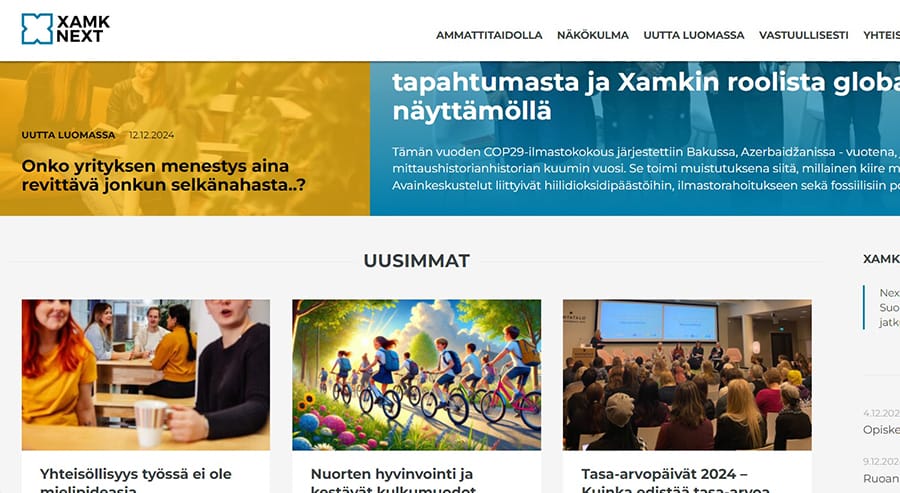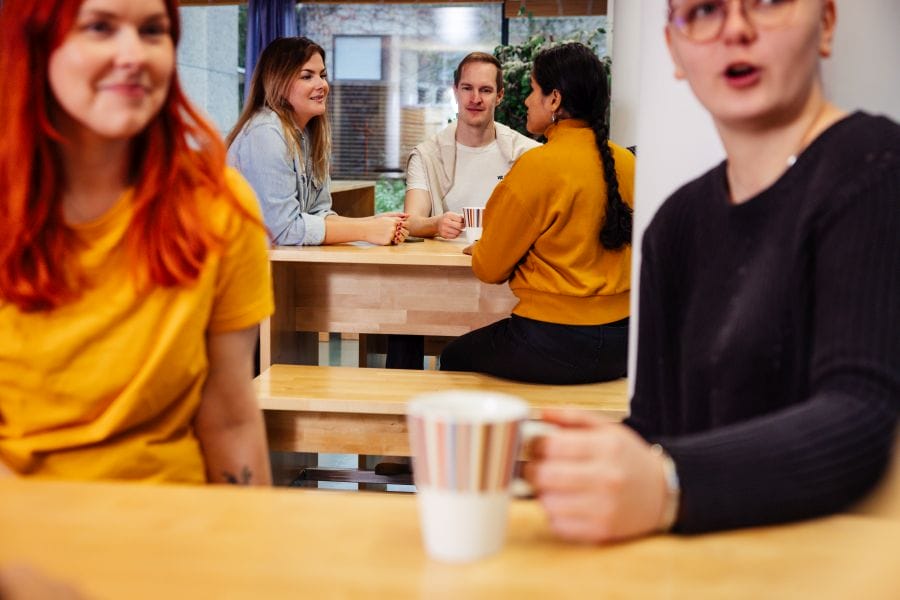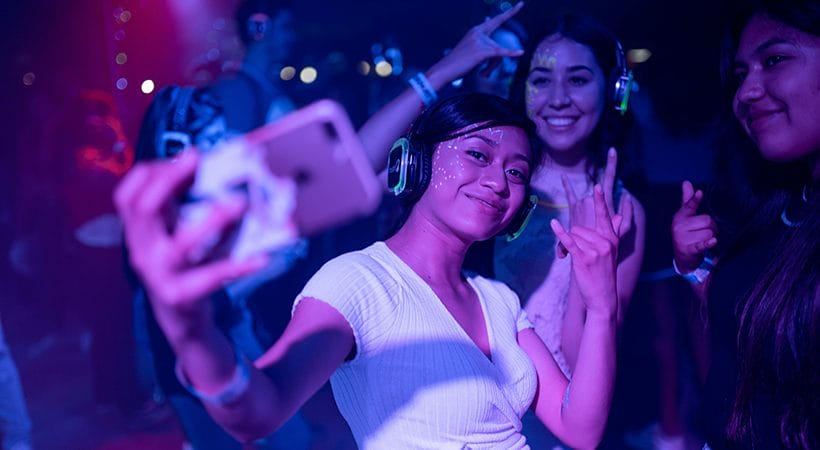Towards more sustainable festivals
Sustainability doesn’t only mean becoming “greener” or making choices from the ecological point of view. Sustainability can, and should also be looked at through social, economic, and cultural lenses. Why is this important? Everything is connected, would Leonardo da Vinci say.
Sustainable development can be achieved by co-operation and support between these areas, also known as three sustainability pillars: economic, environmental, social (European Commission s.a.). But what about the cultural aspect? Culture determines how we act while old traditions combine with new creativity in our everyday lives. Culture is a cross-cutting force for example in education, the economy and international co-operation. (Culture: the fourth pillar of sustainable development s.a.) Creativity can be a superpower to solve complex problems, and we should make more room for it to grow. That’s why, we think culture should be seen as the fourth pillar.
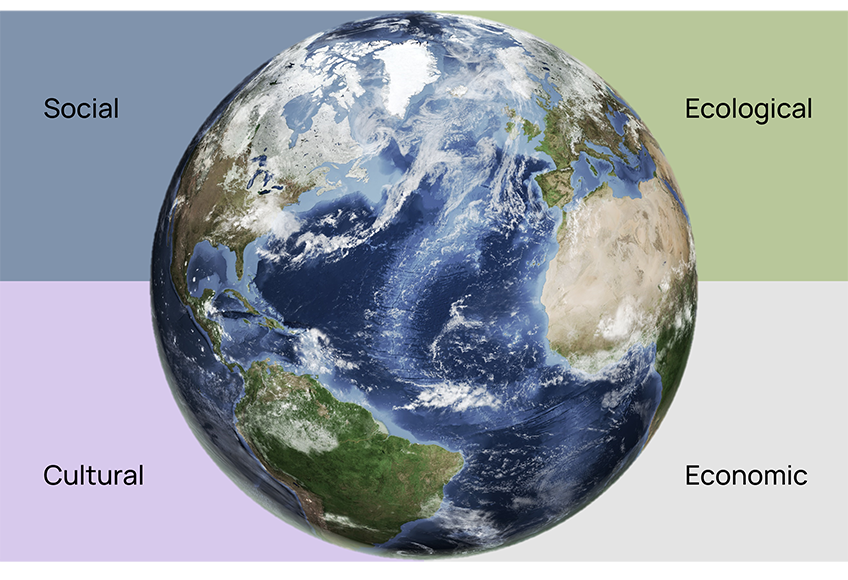
Topics to start the discussion
“Hot Potato popup Café” at Mikkeli Art & Design Week was our workshop concept for inviting people to discuss two hot topics, AI and climate crisis. Workshop was arranged in co-operation with AI-Academy project, and it was open to everyone. However, our participants came from Mikkeli campus.
We curated and color-coded following topics to raise discussion with students around festival sustainability: Food & drink, water, travel & transport, energy, communication, staff & volunteers, materials & waste and festival content. The question we asked was: What could you do to help festivals & events become more sustainable and eco-friendlier? After finding ideas and thoughts, they were mapped on the pillar, in which they would fit the most. Most ideas were presented around the festival content and materials & waste linking to ecological pillar.
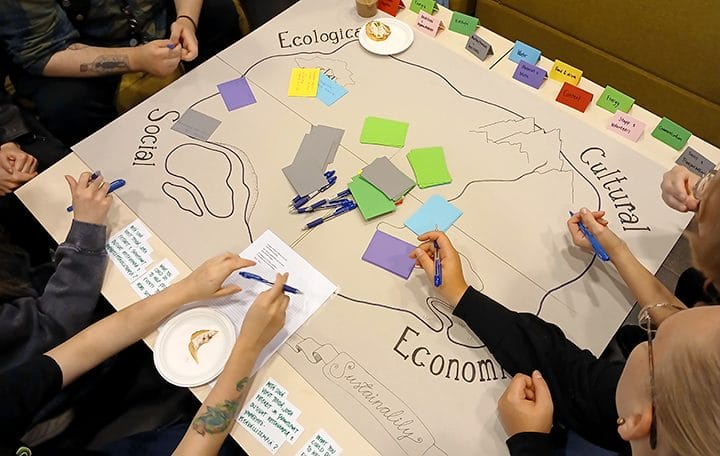
For example, students were willing to bring their own cups for beverage and eat vegetarian food at festivals as long as there are several options to choose from. One idea was to arrange water points already on the way from railway stations to the festival venues to minimize waste and unnecessary water bottle purchases. Students also demanded co-operation between cities and festivals to offer easier ways to use public transportation. They were concerned about festivals becoming a luxury due to ticket price increases. They would not need pyro-shows to be entertained.
Roles for community educators at festivals
Most of the students who participated are future community educators. Knowing this, we challenged them to think about their own role as professionals and to ideate how they could bring their expertise to festivals. These thoughts were mainly linked to social and cultural pillars and focused on festival content and staff & volunteers topics. For example, they would see themselves as team leaders for festival volunteers, as safe grown-ups for youngsters in age-limitless events and as contact persons in harassment or molesting cases.
Local debates around Europe
Overall, students had lots of thoughts and good examples they brought into discussion. Something similar is happening among our partners at Co-vision project. Eight festivals around Europe will host a local debate in their neighbourhoods. Local debates are bringing artists, scientists, and citizens together to exchange knowledge and ideas around climate change and natural heritage on their areas. Project aims to create narratives and artwork of Europe’s natural heritage, which is threatened by climate crisis.
More information
Co-vision project is co-funded by European Union from the Creative Europe programme. More information: covision.eu | Linktree and Co-Vision – Kaakkois-Suomen ammattikorkeakoulu (xamk.fi)
References
Culture: Fourth Pillar of Sustainable Development. s.a. PDF document. Available: https://www.agenda21culture.net/sites/default/files/files/documents/en/zz_culture4pillarsd_eng.pdf
Sustainable development. s.a. website. Available: Sustainable development (europa.eu)

